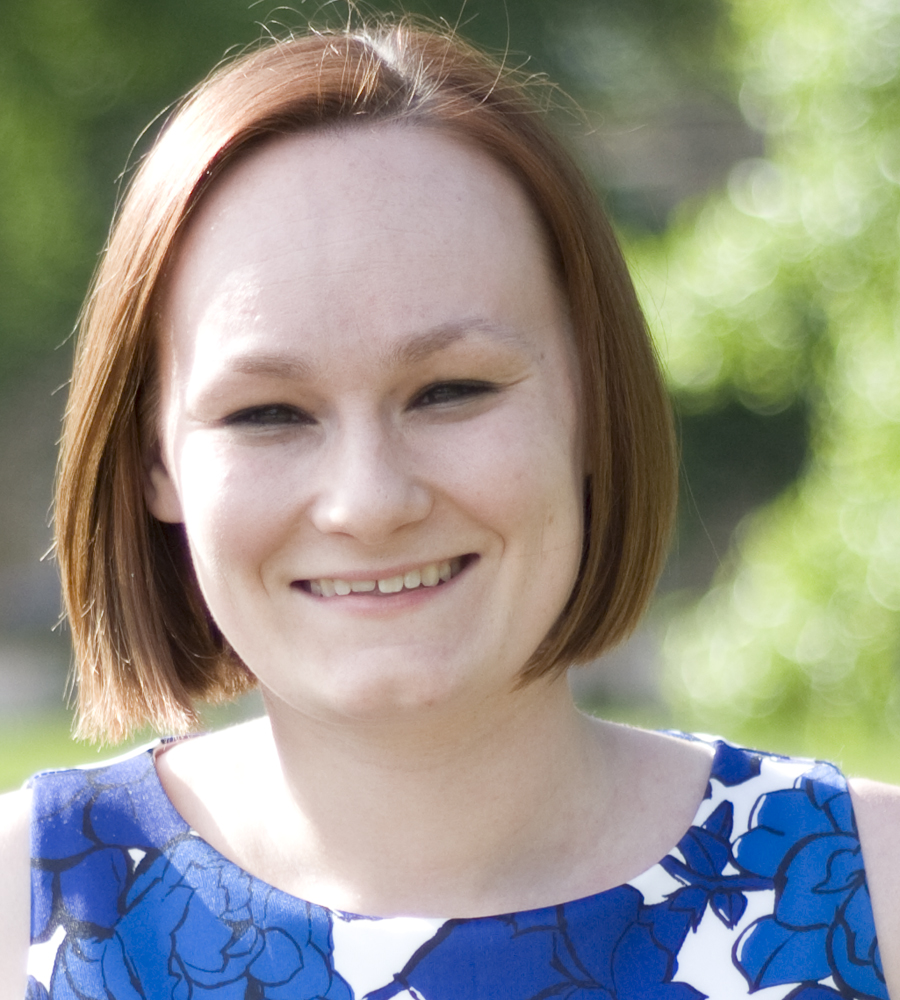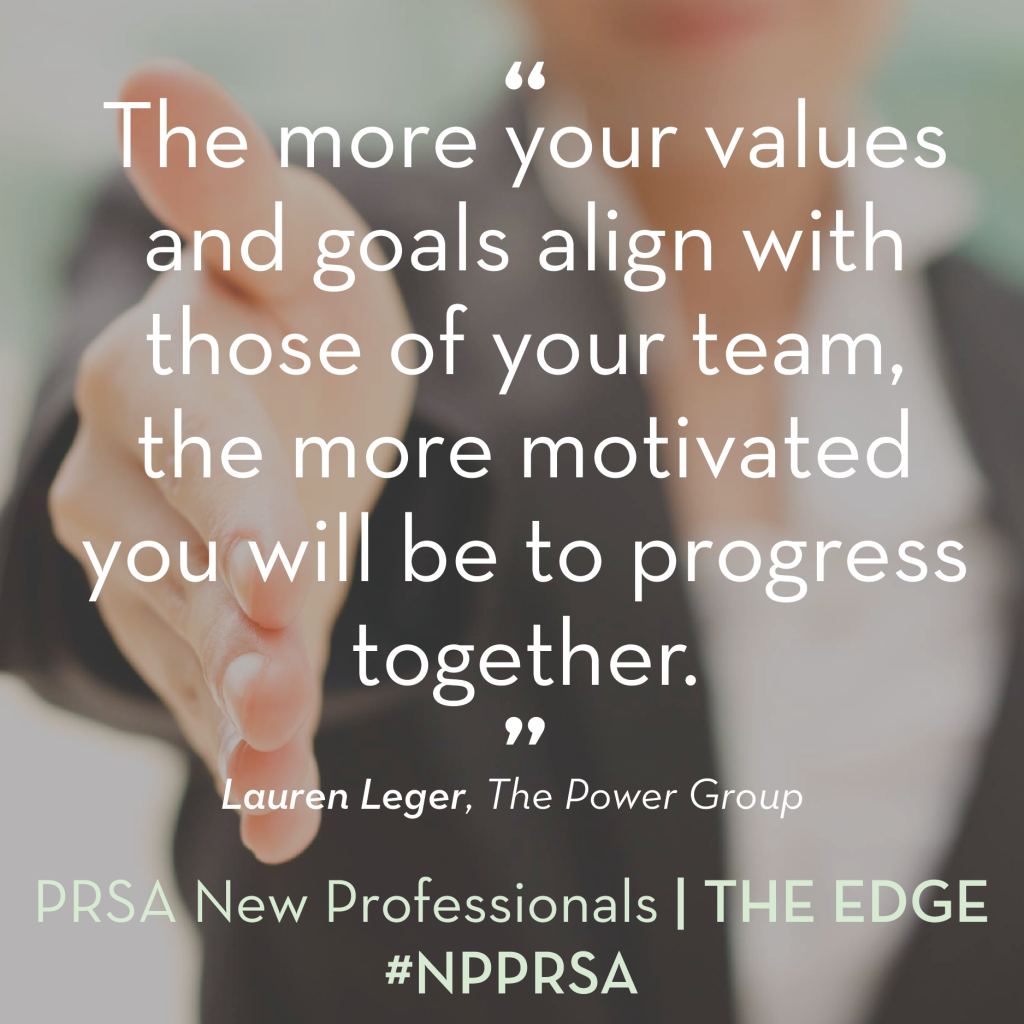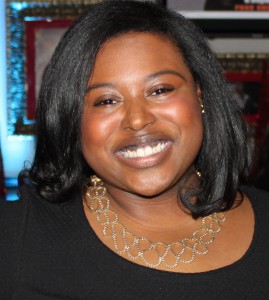Everyone wants to be great at what they do and the new year is a great time to reevaluate everything we’ve been doing and how we can make ourselves the best PR pros we can be, new or otherwise.
 Now’s the time of year when everyone comes up with resolutions for things they’d like to change or be better at. For 2016, why not make it a resolution to focus on professional development and becoming an extraordinary PR professional. Here are 10 things all New Pros can focus on to stand out from the crowd.
Now’s the time of year when everyone comes up with resolutions for things they’d like to change or be better at. For 2016, why not make it a resolution to focus on professional development and becoming an extraordinary PR professional. Here are 10 things all New Pros can focus on to stand out from the crowd.
Be flexible.
PR isn’t one of those jobs where you can count on a strict 9-to-5 schedule. Not everything will fit into eight hours in the office and, more often than not, you’ll have early mornings, late nights and work that needs to come home with you. We can’t change these facts, so the best thing we can do is be flexible. Living by your to-do list will only add even more stress to your life. Instead, look at the list as a set of guidelines and accept that things will change, more pressing things will come up and, sometime, things are completely out of your hands.
Know how to prioritize.
So maybe your to-do list has some non-negotiable, must-be-done things that can’t be postponed. It’s important to know how to prioritize your tasks and your time. As new professionals, we sometimes struggle with doing what we need to when it means saying no to others or admitting that we just can’t take on anything else. There’s nothing wrong with declining an additional project if you know that you won’t be able to commit to it or provide a quality product, blocking off time on your calendar to work on pressing things on your list or taking your work to a quiet space – be it an empty conference room or a nearby coffee shop – to get things done.
Make a commitment to continued learning & growth.
Continuing to learn after you’ve earned your degree is a huge component of professional development. Knowing the latest trends and best practices, as well as having a few extra skills in your back pocket, can really give you an edge over your peers. Committing to reading one new professional or career related book or mastering one new skill a month will put you on a path to success and instill good habits through the length of your career and beyond.
Be a sponge.
A great way to commit to learning is to soak up everything you can. Whether it’s an insight or tip your boss shares, a book your colleagues are raving about or an article or piece of news a college friend posts, take it all in and file it away because you never know when those tidbits will come in handy. As a new professional, you can learn so much just by soaking in what the seasoned pros you know, work with or meet have to share.
Always be prepared.
Being prepared should be kind of a “no duh,” but not everyone is always on the ball. Making sure you’re prepared for meetings, projects and, really, every day of work will really go a long way. Take the time to properly prepare for everything that needs your attention, whether that means making notes, keeping a running list of questions or important items, or just doing your research, and you’ll stand out to your supervisors when you have all the answers at the ready.
Think big picture.
It’s easy to be caught up in the day-to-day in your career, but the important thing is to think big picture – both for your career long-term and for your current position. Think about where you ultimately want your career to go, what you need to do to get there and begin making your plan. Thinking about your job tasks on a bigger scale than just what you have to do each day or week will help you to create overall strategies and plans that will make your day-to-day work easier and turn out better results.
Dive into the news.
As PR professionals, keeping up with the news is something we should all do, but sometimes just get a little lackadaisical about. Sure, there’s a lot of news to be aware of and some of it isn’t really that interesting, but it is important for us as professionals to keep up on what’s going on in the world around us, beyond our own interests. Knowing the basics of current events, including pop culture, world events, business news, etc., can help you as a PR pro to make sense of how things fit together and be aware of opportunities you might have missed out on otherwise.
Sharpen your networking skills.
Networking is a huge part of having a successful career. You may be great at what you do, but if no one knows about it or has a reason to sing your praises, they won’t. Make an effort to connect with new people and grow your network this year by doing something you wouldn’t normally do. Join a Twitter chat, ask someone you admire to coffee or lunch, attend that after-work happy hour or stop by that event your PRSA chapter is hosting. You can learn so much just by talking with new people and listening to what they have to say.
Be relationship oriented.
One of the big misconceptions of networking is that it’s all about how many people you can meet. Too often people look at it as a way to grow a large network of people you know pretty much just in passing, but those connections aren’t worthwhile and won’t do anything to further your career or help you grow. Instead, we should focus on creating relationships through networking, not just gathering as many business cards as we can. If we look at networking as an opportunity to grow through lasting, meaningful relationships we’ll all get more out of it than just a large contact list.
Develop a thick skin.
Unfortunately, no matter how fantastic a PR pro you are or how great your work is, not everyone is going to like you. Sometimes your work will be picked apart, you’ll be criticized or told that what you’re doing is just not good enough. It’s going to happen, but it doesn’t have to leave a negative impression. Those people who have developed a thick skin are able to take constructive input out of the criticism and make themselves better. Focus on not taking negative comments personally and instead find the areas that maybe you could improve upon a bit by looking at your work objectively and reevaluating any critiques you received. No one grows by staying the same.
—
 Robyn Rudish-Laning is a member of PRSA SC and communications coordinator for the South Carolina Council on Competitiveness. She is a graduate of Duquesne University and is currently located in Columbia, SC. Find her on LinkedIn or Twitter or read her PR-focused blog.
Robyn Rudish-Laning is a member of PRSA SC and communications coordinator for the South Carolina Council on Competitiveness. She is a graduate of Duquesne University and is currently located in Columbia, SC. Find her on LinkedIn or Twitter or read her PR-focused blog.
 Hannah Leibinger is an account strategist at Piper & Gold Public Relations, a boutique agency in Lansing, Michigan, that specializes in government, nonprofit and small business public relations. In the Lansing community, she serves as the chair of communications for Grand River Connection, new professionals co-chair and a director at large for the Central Michigan Chapter of PRSA, social media coordinator for Giving Tuesday Lansing and a member of the Old Town Commercial Association business development committee. Connect with her on Twitter (@hleibinger) and LinkedIn.
Hannah Leibinger is an account strategist at Piper & Gold Public Relations, a boutique agency in Lansing, Michigan, that specializes in government, nonprofit and small business public relations. In the Lansing community, she serves as the chair of communications for Grand River Connection, new professionals co-chair and a director at large for the Central Michigan Chapter of PRSA, social media coordinator for Giving Tuesday Lansing and a member of the Old Town Commercial Association business development committee. Connect with her on Twitter (@hleibinger) and LinkedIn.


 you will be to progress together. Carefully notice those who speak with you throughout the interview process. What kinds of questions are they asking? How do they treat you? What’s their body language? All of these things can provide insight into their values and work style. If you don’t feel like it’s a fit, it’s probably not, and you’ll likely run into roadblocks in the job as a result. Go with your gut impression of people and be sure to consider how it will affect your day to day at work. If you don’t consider values in the job search, you may find yourself working with people who are not likeminded, facing an uphill battle every day at work – not fun!
you will be to progress together. Carefully notice those who speak with you throughout the interview process. What kinds of questions are they asking? How do they treat you? What’s their body language? All of these things can provide insight into their values and work style. If you don’t feel like it’s a fit, it’s probably not, and you’ll likely run into roadblocks in the job as a result. Go with your gut impression of people and be sure to consider how it will affect your day to day at work. If you don’t consider values in the job search, you may find yourself working with people who are not likeminded, facing an uphill battle every day at work – not fun!


 How do you accomplish fitting in and knowing how to act? Follow these four tips that will surely make you a part of the team and not just the “new” person.
How do you accomplish fitting in and knowing how to act? Follow these four tips that will surely make you a part of the team and not just the “new” person.

